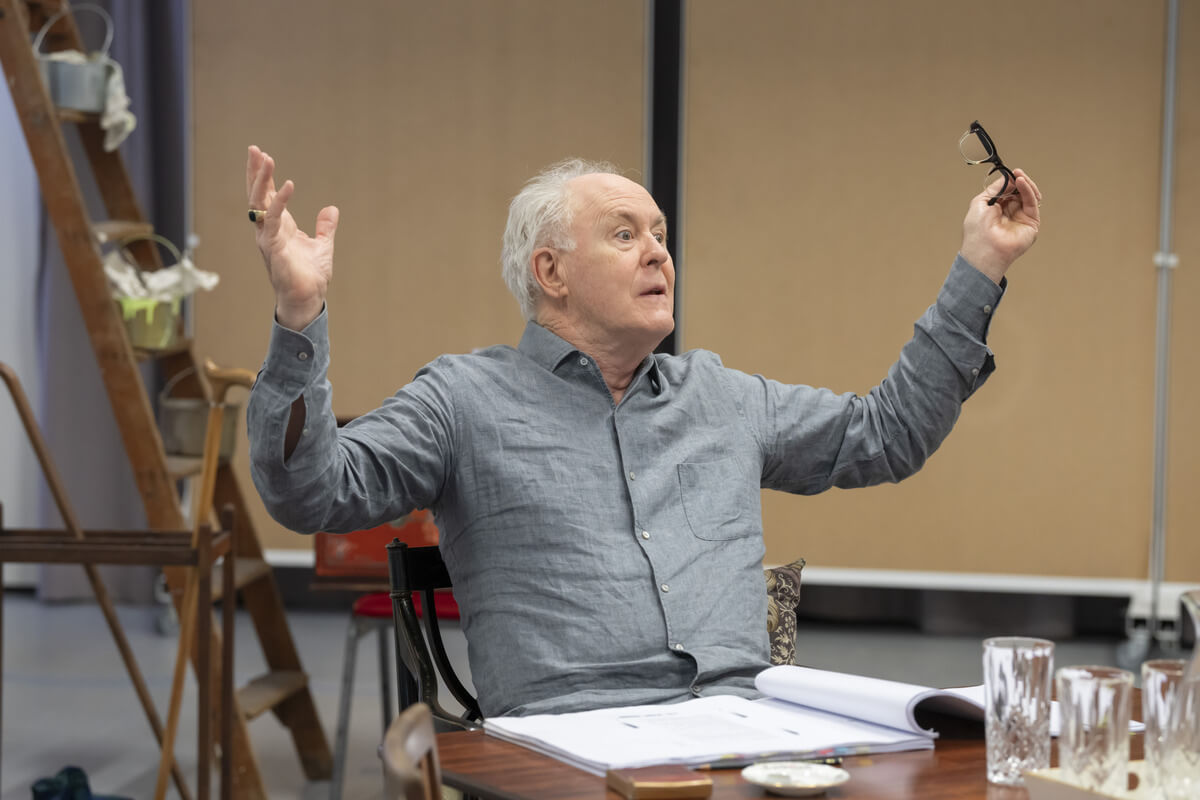They keep the old movie house gloriously dilapidated in shades of haunted house chic like a mini Brooklyn Academy of Music and it's a gorgeous Aladdin's cave of gothic bric-a-brac. Currently playing is a double bill of early plays by Swedish playwright Lars Noren, which seem to have been picked to contrast with the romantic venue as starkly as possible.
As you almost certainly already know some human beings lock up and torture other human beings and sensory deprivation is sure fire way to mess with someone's head. If you've ever fancied dwelling on that fact for an hour with no resolution or reflection then the first play, ACT, is for you. An anonymous female victim exchanges non-sequiturs with a sinister interrogator, both are unreliable narrators chipping in contrasting and deliberately obtuse information about some dystopian civil war. The costumes are contemporary, the accents mostly southern American and there's a dusty confederate flag in the corner amidst the debris of what looks like a dispiriting yard sale.
It's desperately sub Harold Pinter (check out his play ONE FOR THE ROAD, which will be revived at the theatre named after him later this year, for the last word in meticulously crafted prisoner/interrogator mind games that will chill you for life). In comparison this writing is unfocused, meandering and, in its self-conscious desire to be profound, renders itself both ridiculous and pointless.
Things aren't much better after the interval in TERMINAL 3, when two couples, one mourning the death of a child, the other celebrating a birth, meander through miles of spooky corridors. Are they the same people? Where are they? Who are they? And the most perplexing question of all - who cares? Because, honestly, if you don't already know that birth and death are two sides of the same coin no play can help you.
Actors Barnaby Power, Robert Stocks, Temi Wilkey and Hannah Young struggle valiantly to bring three dimensions to characters calked things like He, She, Man and Woman and director Anthony Neilson, much better at writing this stuff than Noren, commendably seems to have given it all the benefit of the doubt. Their warrant a three star review even if the writing is decidedly one star.
Perhaps the most disturbing thing about this whole evening is that, according to Noren's grandiose programme biog, the New York Times once wrote that he's "considered the most important playwright since August Strindberg in his native Sweden". It's been a very slow century in Stockholm theatre then.

 Late to the party as usual this was my first visit to the Print Room Theatre Company at their relatively new home, the former Coronet Cinema, a stones throw from Notting Hill Station. It's a wonderful addition to London's sprawling Fringe Theatre scene.
Late to the party as usual this was my first visit to the Print Room Theatre Company at their relatively new home, the former Coronet Cinema, a stones throw from Notting Hill Station. It's a wonderful addition to London's sprawling Fringe Theatre scene.


